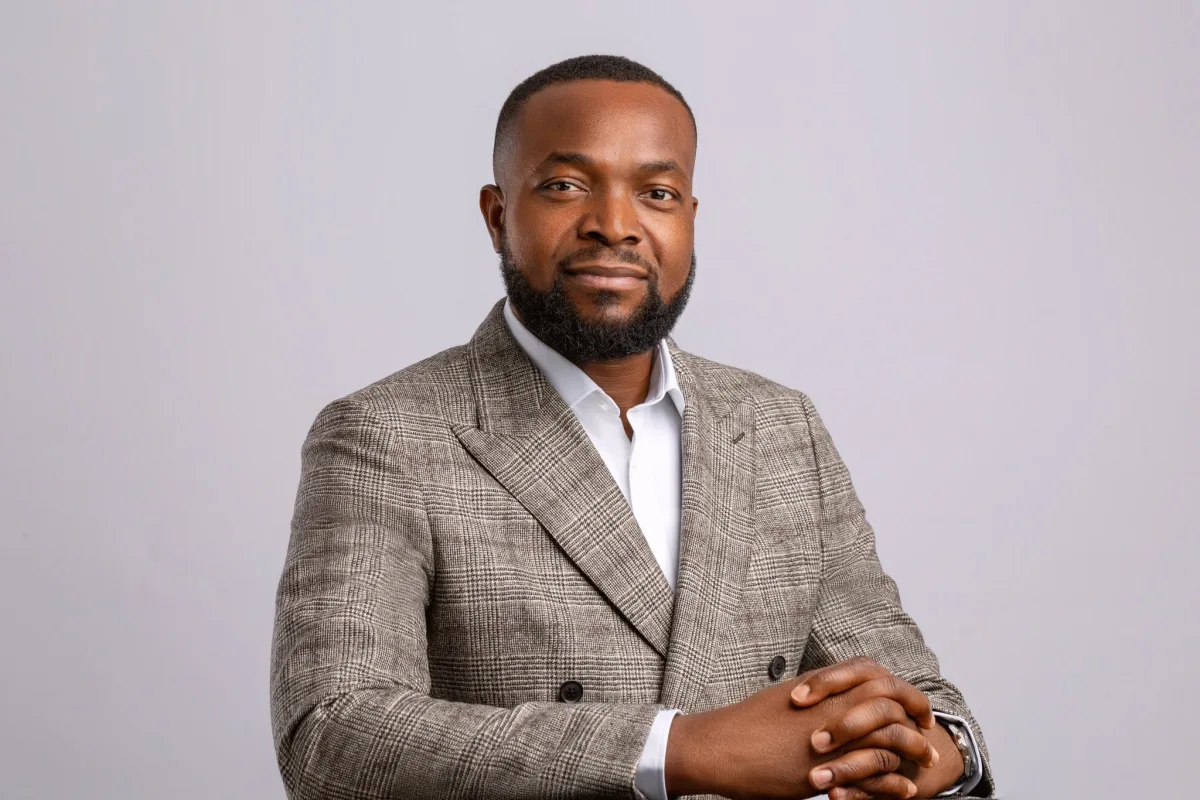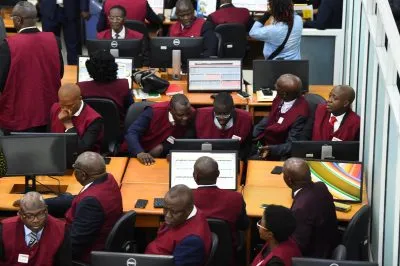Six months into the role, Bosun Tijani, Nigerian President Bola Tinubu’s surprise pick to lead the Ministry of Communications, Innovation and Digital Economy, is clearly relishing the job.
In his previous life as a tech investor and advocate, he was an integral part of the community he now oversees. After working in tech in Nigeria and the UK, he founded Co-Creation Hub (CcHub), an influential co-working space and startup incubator with branches across the continent.
That community of impatient disruptors, tech wizkids and driving entrepreneurs would often find itself at variance with the bulky and lethargic machinery of the Nigerian state. But if there has been a culture shock in Tijani’s surprise move to government, the scars are not exactly evident.
“I find that because I am from the startup community, I see everything as an opportunity to build. Even the challenges present an opportunity to build around them,” he tells African Business when we meet him at the World Economic Forum in Davos. Tijani points to his background as an explanation for his approach.
“Because I am a social scientist, I take everything from a social systems perspective. That is what makes it fun. So how do you digitalise government, knowing that you have to work with the civil service and there will be some pushback? And you also have the infrastructure issues to deal with it?”
The answer, for Tijani, is to discard a one-size-fits all approach, identify sources of support and build a community of champions who share his vision. Days before our meeting, Tijani launched #DevsInGovernment, described as “a community of the technology workforce of the Federal Government of Nigeria who are passionate about advancing technology and digital transformation in government”.
The idea, he explains, is to get the buy-in of the public sector.
“If they don’t know what you are trying to build, they can’t support you.”
It also helps that the president, who appointed him without once meeting him before, understands the mission and is backing him. The goal is to integrate technology into the very fabric of Nigeria’s society and economy, leveraging it to solve problems, create jobs and build prosperity.
Nigeria is the most populous nation in Africa, with well over 200m citizens. Tijani sees Nigerian youth, who constitute about 60% of the population, as natural allies in the effort to build a digital economy. The plan is to equip these young people with the skills to make their way in the digital world.
Technical Talent Training
The Technical Talent Training programme, unveiled in October 2023, aims to train 3m people as the first step. Tijani believes Nigeria has a good pipeline of talent that is motivated and proactive and can form a tech-enabled workforce with a global impact comparable to India, which offers a strong example of tech-enabled growth.
“They had some really strong education institutions but, again, when you compare now to when India did it – the form of education itself has changed; how people learn has changed. Technology has democratised access to knowledge, so we don’t have to build it the way India did”, he says.
What is important is roping academic institutions into the mission and funding the research projects that will bring technology to life.
“In my first four months as minister, we’ve funded 45 research projects in artificial intelligence. We are announcing another 10 demonstration projects in agriculture, because the president is quite bullish on agriculture. He wants us to cultivate half a million acres of land, so we are seeing the role that technology can play.”
Artificial intelligence is, of course, front and centre in the digital conversation and Tijani feels that even if Africa was left out at the beginning, the continent can still catch up where it matters most.
“In terms of what is actually there, we can leapfrog this application. I think African countries like Nigeria can use AI more efficiently than western countries,” he says, pointing to sectors like agriculture and public health, where from a starting point of “almost zero,” Africa can build out solutions without needing to first dismantle something already in place.
Shaping the direction of AI
For countries coming late to the party, there is still the vital task of shaping its future direction and structure, and that is something that Tijani says he’s committed to. “We’re also making sure that while we may be late to the frontier, we’re participating in global conversations around how it should be governed. We don’t have a choice. Once it is built, it is going to affect all of us.”
His agency is supporting innovations to “drive the conversion of dark data to connected data”. Nigeria, he says, can become a strong global voice for AI data inclusion, and can also contribute on AI safety. Tijani was a guest at the recent AI Safety Summit hosted at Bletchley Park by the UK government.
“I think there are serious safety issues that we can’t compromise on – it can be used to pull nations down – but I think for us on the continent, we can’t be too scared of it and not use it for the good that it can do, because it can do so much for us.”
In Africa, he suggests, there should be strong direction locally, anchored by broad regional oversight. Anything more, he says, may compromise capacity building at the local level.
“We have to be careful with the continental approach because the thing about AI is that the more you build your position and strategy, the more you build your local capacity. African countries may not benefit significantly because they won’t have localised expertise,” he cautions.
Building local capacity also means local capital, something that even in deep-pocketed Nigeria is not quite flowing. This, despite the fact that in the last quarter of 2023, the tech sector accounted for 18% of Nigeria’s $500bn economy.
Tijani says this can be attributed to the structure of the start-up ecosystem: “We talk about them as if they are outside the sector, but they are part of it. So the startup ecosystem still misses out on getting integrated with the actual communication sector and I think once we do that… they can start to do good business, which will attract local investors and local money.”
Digitalising government
The federal government itself is also embarking on its digitalisation drive. The task now is to integrate the disparate systems into a comprehensive digital public infrastructure system. A holistic system will include a digital identification system and Nigeria’s Interbank Settlement System which, Tijani says, has more users than the more celebrated M-Pesa.
“That’s what we are now doing. The goal is to build a system which will provide standards for technology solutions in government and also facilitate interoperability and data sharing among the different government solutions. Once we’re able to build that base foundation, it’s easier for us to start to digitalise different government operations.” As an investor, advocate and now regulator, Tijani’s faith in the power of technology is obvious.
“I think we need to learn from fintech in Africa. There are massive opportunities for technology in education, for example. There is so much we can be doing with tech to support teachers. I think agriculture is also another area where we are sleeping on the power of digital technology. I’m hoping that before the end of the first four years, we can see another vertical that becomes really strong, as strong as fintech.”
Observers will be watching closely to see if the results bear out the optimism.
Want to continue reading? Subscribe today.
You've read all your free articles for this month! Subscribe now to enjoy full access to our content.
Digital Monthly
£8.00 / month
Receive full unlimited access to our articles, opinions, podcasts and more.
Digital Yearly
£70.00 / year
Our best value offer - save £26 and gain access to all of our digital content for an entire year!

 Sign in with Google
Sign in with Google 



